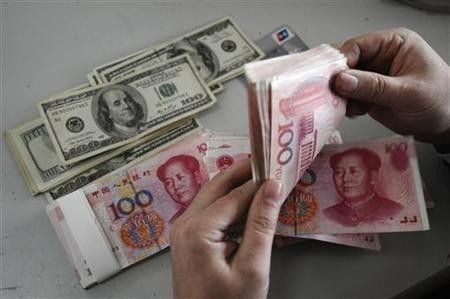China FX Reserves Shrink: What to Expect in 2012?

The foreign exchange reserves of China shrank by $20 billion in Q4 2011, the first quarterly decline since 1993.
The major cause for this could have been the tight global liquidity conditions, which is an aspect that may well persist into the first half of 2012. According to Societe Generale, Cross Asset research there is a forecast for two highly challenging quarters ahead for the Chinese economy and continued uncertainties in the euro area.
The depreciation of the euro against the USD was a major factor for the slowing down of China’s FX reserve accumulation. Also Chinese exporters and importers’ FX transaction behavior amplified the impact of narrowing trade surpluses.
Lately, Chinese exporters have been less willing to convert their FX receipts into the yuan, while importers seem more willing to convert their yuan into other currencies. U.S. dollar funding constraints and reduced expectations for yuan appreciation were probably behind this pattern.
In addition, a significant share of recent flows of FX has been Chinese corporates’ offshore financing activity. HK banks’ total claims on Chinese companies increased 50 percent yoy in the first seven months of 2011. The pace started decelerating sharply thereafter. With their debt maturing Chinese companies find it increasingly difficult and expensive to roll over USD borrowing. Finally, the actual speculative capital flow was probably quite marginal.
Liquidity injections into the U.S. financial market can help improve liquidity conditions globally due to its international status. Chinese exporters will then feel less need to hold on to U.S. dollars and mainland companies will have better access to offshore U.S. credit, potentially at a lower cost.
If the Chinese economy undergoes a challenging H1, forecast by Societe Generale Cross Asset research, concerns about a hard landing will gain traction, which may in turn affect the risk perception of the global market. So accumulation of China’s FX reserves will slow down steadily and become more volatile as China increases the flexibility of the yuan and its current account continues to shrink.
© Copyright IBTimes 2025. All rights reserved.





















